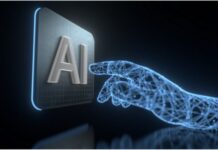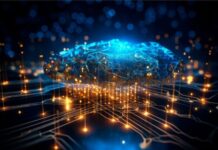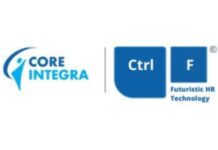According to a poll by Bain & Company, 80% of CHROs agreed that generative AI has the potential to revolutionize talent management practices.
Gone are the days when HR team members seldom had the time to do strategic work that added value to the business. The reason? They were preoccupied with repetitive processes and time-consuming tasks. Fast forward to 2023. Artificial intelligence (AI) has changed the game and HR has more bandwidth to do a lot more.
Let’s take a look at a few of the opportunities and challenges of AI, a technology that’s creating ripples the world over.
Opportunities
Elevated efficiency
The HR function is known for repetitive and time-consuming tasks. Teams that use manual, spreadsheet-based methods are likely to face issues due to documentation complexities, processing delays, and calculation errors.
Times have changed. AI-powered HR platforms can help automate, streamline, and expedite several HR tasks. Automation can index, sort, and fetch data to process it without human intervention. Today’s HR tech platforms have modules to ease the administrative workload.
Streamlined recruitment
Recruiters spend a lot of time posting jobs, sifting through resumes, and identifying the
right candidates for the right job. It becomes taxing when there is a surge in the number of vacancies and applications.
AI-based platforms can post jobs, screen CVs to match them with JDs, and schedule interviews automatically. Even the initial assessments can be automated. AI can also analyze the conversations to arrive at helpful insights. Automation speeds up the process and ensures higher accuracy. Moreover, there’s no scope for bias or oversight due to fatigue. It can also verify documents, provide information, and guide employees through the onboarding journey.
Precise payroll processing
Payroll computation, statutory compliance, and accurate salary disbursement can put immense pressure on HR and payroll teams. The entire process can be stressful and time consuming, since it involves huge amounts of data from multiple sources.
An AI-driven payroll solution simplifies the entire payroll process. It can fetch data from different sources and validate the same for accurate and timely payouts. The solution also ensures statutory compliance automatically.
Predictable performance management
Individual performance matters a lot for team performance. But it’s not easy for managers to track and improve every team member’s performance without a clear appraisal process. When an employee’s performance dips, the team’s productivity also dwindles. This can have a domino effect and impact the organization’s performance in the long haul.
A modern performance management system (PMS) uses AI to evaluate and improve employee performance. It helps set clear KPIs, facilitate feedback, and suggest the right training. When the team members’ strengths and improvement areas are identified, it becomes easier for both the employee and manager to make well-informed decisions.
Impactful learning & development
Lack of employee engagement, information overload, and outdated training methodologies are some of the common challenges of training teams. But productivity and growth cannot happen without effective upskilling and reskilling. These issues are compounded in today’s remote-work scenarios.
AI-powered systems are now addressing most of the challenges of traditional training methods. The systems identify skill gaps and recommend bespoke learning paths, so the employees are able to optimize their full potential. AI can also help create simulated experiments to offer an interactive and immersive learning experience. Most importantly, it helps trainers save time and effort by creating course curriculum and related content quickly.
Challenges
Missing human touch
Face-to-face interviews, performance appraisals, and training programs have happened
across the table. But the pandemic changed everything. Remote work became the new normal. Everything went online. No doubt, digital tools did a great job of empowering employers and employees. Technology offered immersive experiences during interviews, onboarding sessions, and training programs. But it cannot do what humans can do. Therefore, many HR teams and employees still enjoy one-to-one interactions! The only way to make the most of AI is to strike the right balance between technology and human intelligence.
Lack of awareness
Many functions and industries have been using AI for years. Although HR platforms have AI built into them, not all teams are leveraging their full potential. Organizations need to educate employees to use technology prudently and ethically. HR teams using legacy methods are likely to resist adoption due to a fear of job loss and lack of trust. Once they are enlightened, nothing can stop them from making friends with technology.
Probable security threats
AI-based HRMS platforms are usually secure since they process a lot of information. They eliminate human errors and handle repetitive tasks accurately. But they have to be used cautiously and intelligently for the right purposes. Otherwise, the adoption can become counterproductive. Hence, it is crucial for organizations to choose a reliable application from a reputed vendor.
AI is undoubtedly a game changer in HR. As more and more teams adopt AI-enabled HR tech platforms, employees have become receptive to the change. Different organizations are deploying different types of applications based on their needs. But the ones that help streamline processes, empower employees, and improve all-around productivity will remain sustainable.















